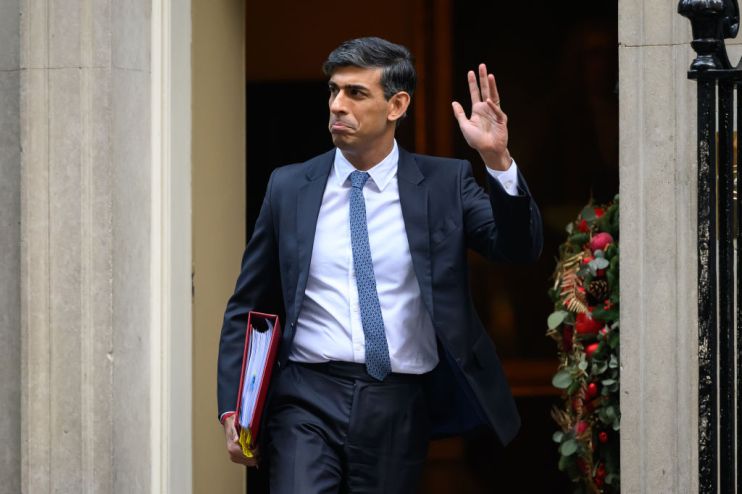Sunak can sign a new deal with Rwanda but it won’t save the Tories at the election

If the Tories’ rapid policy reaction to the high immigration numbers is an obvious sign that an election is looming, Robert Jenrick’s resignation last night is an obvious sign of just how badly they’re worried they will lose it. Within the next thirteen months, we are guaranteed a poll. The government knows they are at the short end of the stick – and so to do, it seems, does the now former Home Office minister who was responsible for drawing up much of the Rwanda legislation.
The problem for both Rishi Sunak and any other minister considering jumping ship, is that there is limited time for anything they do to make a difference.
A week may be a long time in politics, but a year is a surprisingly short time to get things done. There are around 200 days of parliamentary time – but much of that is taken up with business other than legislating. Laws not already in progress will struggle to be passed before the end of the term, especially if they might prompt backbench rebellions or tussles with the Lords. Anything not already in the King’s Speech is unlikely to get much time at all.
Even policies that don’t need new laws take a while to implement, and even longer to take effect. This week’s immigration proposals will only come into effect from the spring. Even then, processing times mean that for the first couple of months, new arrivals will actually have applied to come here under the current, more relaxed system. Even if the election is delayed as late as possible, the newest immigration figures will barely reflect this change. It’s a lagging indicator, and that’s a problem for the government.
When you have a condensed timetable, as the Tories currently do, you need to be wary of what you are measuring your targets against. Things like immigration, measured retrospectively on an annualised basis, just don’t respond quickly enough to what you are doing today. The outcome for pre-election stats is pretty much already set out. This is poorly understood by the public, and so any mitigation is likely to fall on deaf ears.
Trickier for the government is that the drawbacks of their decisions might manifest first. A clampdown on visas for the care sector, for example, could mean a shortage of workers. Tight rules around even British citizens bringing foreign spouses here will spawn stories of unfairness and win public sympathy. The effects become apparent immediately when it takes three months or more to count the immigration figures. The cost comes up front, the benefit is delayed.
In other areas, success might just not be enough. Inflation is coming down, but that only measures the rate of change – people will notice prices being high, not the Chancellor boasting about a percentage. Meanwhile, NHS waiting lists are not expected to peak until next summer, perhaps again falling too late for the voters to forgive the party for them going up in the first place. Even on the small boats, much is out of the government’s hands, with a sultry summer of calm seas all it takes for those numbers to shoot back up to record levels.
At the same time, the government knows that catastrophes are more sudden than successes. The aerated concrete scandal already caught the party off guard, but many more risks are lurking from a struggling public sector. A big prison riot, a train crash, or a mass blackout could erupt rapidly and expose the government – ripping through their strategy in an instant.
There’s always this conflict between politics and policy in Westminster. Heading towards an election makes it more acute. The government will be hoping that announcements are the things that move the dial, but after fourteen years of power, voters will be looking for results. Decreeing something and doing it are wildly different. The troubling news for the government is that even if things work for them, the ones they want to boast about might come too late.
